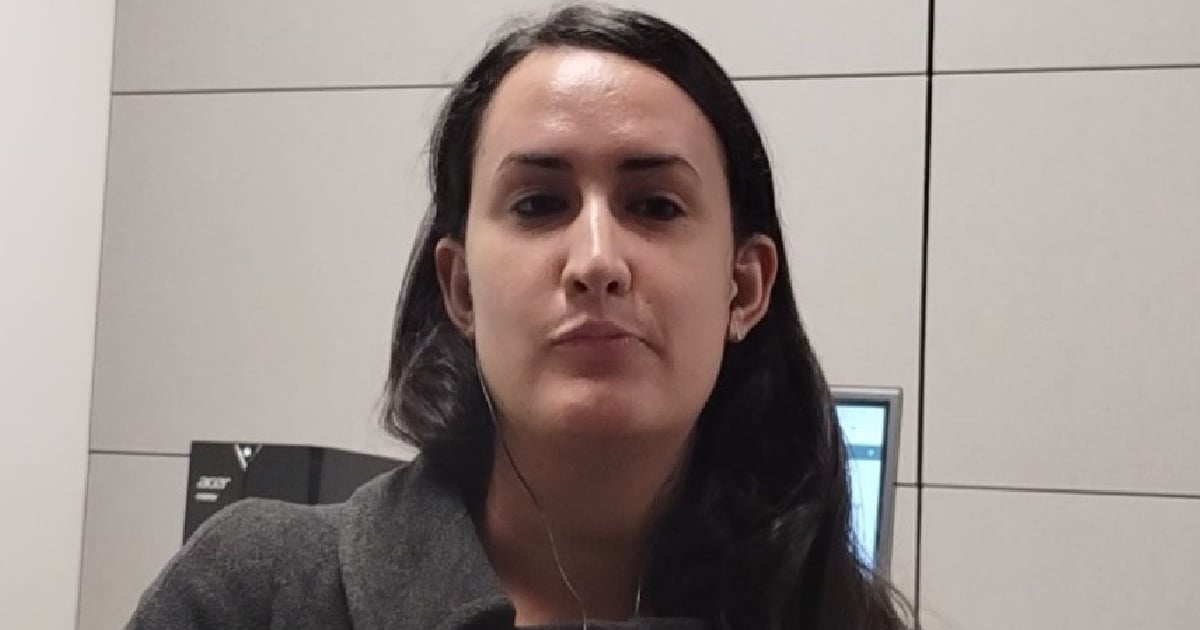
Related videos:
The correspondent for the Cuban agency Prensa Latina at the United Nations (UN) headquarters, Elizabeth Borrego, reportedly left her position to settle in the United States, it was revealed on Thursday.
Borrego, 31 years old, had been serving since 2023 as the representative of the official Cuban agency at the United Nations headquarters in New York, but he contacted the central office in Havana to inform them that he would not be returning to Cuba, Cubanet news portal confirmed.
The leadership of the state-run agency had not experienced the loss of a journalist in the field since the departure of its correspondent in London, Néstor Marín, who, despite being the right-hand man of the then-president of the media outlet, Luis Enrique González, also decided in January 2023 not to return to the island.
The escape of Borrego has been applauded by her former colleagues, who told CiberCuba that she is an outstanding professional.
The incident adds to a growing exodus of young and talented journalists seeking better living conditions, another worker from the mentioned media outlet stated to the portal El Vigía de Cuba.
“She is a good journalist, but like any young person, she dreams of a dignified life, of having children, and that is impossible here,” expressed her colleague, who requested anonymity. Others criticized Borrego’s decision, believing she betrayed the trust placed in her by being assigned to such a significant position as the UN.
The young woman, originally from Sancti Spíritus and hailing from a family of journalists, is the daughter of the late Juan Antonio Borrego Díaz, former director of the newspaper Escambray and a correspondent for Granma.
In recent years, Prensa Latina has experienced the loss of nearly fifty journalists, many of whom have chosen to emigrate to the United States or other countries in search of better opportunities.
The agency is facing severe financial difficulties, with several of its international offices unable to meet rental and salary payments. This is compounded by a lack of leadership, as the agency has not had a president since Luis Enrique González, who served as president since 2010, was appointed ambassador to an African country.
The agency maintains, despite being in crisis, 36 branches in key cities around the world, including the correspondent office in Washington, which remains active with correspondent Deisy Francis Mexidor, who has been linked to Cuban intelligence.
On December 30, it was also reported that the communicator Sergio Ortega, one of the most prominent voices in sports commentary in Cuba, arrived in South Florida with his family.
Frequently Asked Questions About the Decision of the Press Latina Correspondent to Stay in the U.S.
Why did the Press Latina correspondent in New York decide to stay in the U.S.?
Elizabeth Borrego decided to stay in the U.S. in search of better living conditions, joining the exodus of young Cubans seeking a more dignified life outside of Cuba. This decision reflects the lack of opportunities and the crisis faced by professionals on the island.
What impact does the departure of journalists from Cuba to other countries have?
The impact is significant as the departure of journalists reduces the ability of official Cuban media to provide coverage and represents a loss of talent that could have contributed to the country's development. Furthermore, it highlights the financial and leadership crisis facing Prensa Latina.
How has the economic situation in Cuba affected professionals on the island?
The economic situation in Cuba has driven many professionals to seek opportunities abroad due to a lack of resources, low salaries, and precarious living conditions. This is evident in the brain drain affecting various sectors, such as journalism and medicine.
What difficulties is Prensa Latina currently facing?
Prensa Latina is facing severe financial difficulties, struggling to meet rent and salary payments in its international offices. Furthermore, the lack of leadership since the departure of its president has impacted its operations and stability.
Filed under: